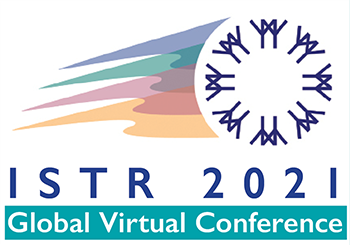Canadian organized philanthropy is significant in Canadian civil society. Among approximately 86,000 registered charities, we count over 10,000 registered public and private (primarily family) foundations, a proportion of all registered charities not dissimilar to that of foundations in the United States. According to the most recent data available (from 2017) these foundations gave a total of $ 6.7 Billion to other Canadian charities.
But the raw data says very little about the quality and impact of this philanthropy. Information remains patchy and anecdotal. Efforts are being made to amplify the research on the impact of organized philanthropy but as yet there are few university-based clusters of researchers in Canada. The Masters Program in Philanthropy and NonProfit Leadership at Carleton University has a node of researchers producing public material on philanthropic impact. And Philab Network at the University of Quebec at Montreal has been active for the past three years in publishing material on the impact of foundations. However, the academic literature remains surprisingly limited.
The literature may not make them visible, but we have a lively community of Canadian foundations and they are addressing some important issues for our society:
- Transitioning communities in the face of climate change
- Identifying sustainable growth strategies and policies
- Reconciling with the legacy of colonialism and the challenges faced by Indigenous communities
- Developing innovative approaches to the challenges of integrating young people into employment in a mature society shifting to a digital economy with new skills needs
Many of their stories are being told through Philanthropy In Action, on the site of by  Philanthropic Foundations Canada, the philanthropy support organization for many public and private philanthropies. Here, we see evidence that Canadian funders are convenors, catalysts, policy developers and space holders, not simply grantmakers.
Philanthropic Foundations Canada, the philanthropy support organization for many public and private philanthropies. Here, we see evidence that Canadian funders are convenors, catalysts, policy developers and space holders, not simply grantmakers.
Earlier this year, I suggested that Canadian foundations consider three more specific challenges in 2020: media and democracy, non-profit leadership, and non-profit sector capacity.
1. What role can philanthropy play in promoting a more informed democracy?
Back in 2013, US-based observers suggested that “if a requirement of democracy is that all citizens have an equal opportunity to make their voices heard, then we must find ways to help that happen. A longstanding argument on the role of civil society is that it should do two related but somewhat opposite things: 1) serve as a means for bringing forward new ideas that with the support of the majority are put forward into government, and 2) serve as a place to support the ideas and interests of multiple minorities. Philanthropic organizations thus serve as a pipeline into democratic engagement, and as an incubator and home for ideas and communities that are still emerging or may not have found awareness or favor with the voting majority.”
Canadian foundations are working on media and democracy already. The Atkinson Foundation has supported the Public Policy Forum’s “Shattered Mirror” investigation into the long-term implications of shifts in digital technology, news and politics. Digital news platforms are upending media business models. How to regulate and manage these new digital media platforms in ways that support informed citizens and better policy? The McConnell and Rossy Foundations are supporting a digital democracy project at McGill’s Max Bell School of Public Policy. Might we see more of this being done in Canada in 2020?
2. The second challenge is building non-profit leadership.
How can Canadian philanthropy support the development of leaders from the millennial generation of people in their 30s today? The first millennials will be turning 40 in 2021. Are they ready to take on leadership positions in the Canadian non-profit sector? This generation of leaders will be the one to confront head on the impact of huge and complex challenges such as climate change. And this generation is also more focused on equity, inclusion and different ways of working. What do they need to build their skills?

Some foundations are paying close attention to helping youth prepare for the workplace. RBC Future Launch and PwC Canada Young People Project are providing philanthropic support to mentoring, coaching, skills acquisition and work experience opportunities for young people. The Counselling Foundation of Canada provides extensive support to youth planning their careers and developing their skills. What about developing non-profit leaders themselves in mid-career? The Rozsa Foundation through its Arts Leadership Programs provides targeted assistance to leaders at all stages of their careers in arts organizations. No reason why this approach could not be considered for other parts of the non-profit sector. And a small philanthropic investment such as this has very long-lasting impact.
3. The third challenge is building non-profit sector infrastructure.
Elsewhere, I have argued for foundation support for intermediary organizations that provide collective action on rules and standards, gather intelligence, mobilize knowledge, and advocate with policy-makers. Relatively few private foundations in Canada have chosen to do this as a primary goal. The Muttart Foundation and the Lawson Foundation are examples of philanthropy that recognizes the value of strengthening the philanthropic and charitable sectors. Other foundations work to support infrastructure within their areas of interest. But there is still a major gap. These organizations and platforms are fragile. Small investments bring big dividends, especially if the investment is in capable leadership.
Viewing philanthropic strategies through these three lenses faces us with an important question for future research: How are foundations contributing to the development of informed citizens, capable young leaders, or a stronger non-profit sector in Canada overall? Perhaps the discussions at ISTR in Montreal in 2020 will provide us with some answers.

Guest post by Hilary Pearson, Canadian expert on foundation philanthropy in Canada. She was the founding President of Philanthropic Foundations Canada, advises the federal government on policy and regulatory issues, has been a director on several major non-profit boards, and has worked with many of the largest private charitable foundations in the country. Ms. Pearson serves on the Advisory Committee to the Masters in Philanthropy and Nonprofit Leadership program at Carleton University.



